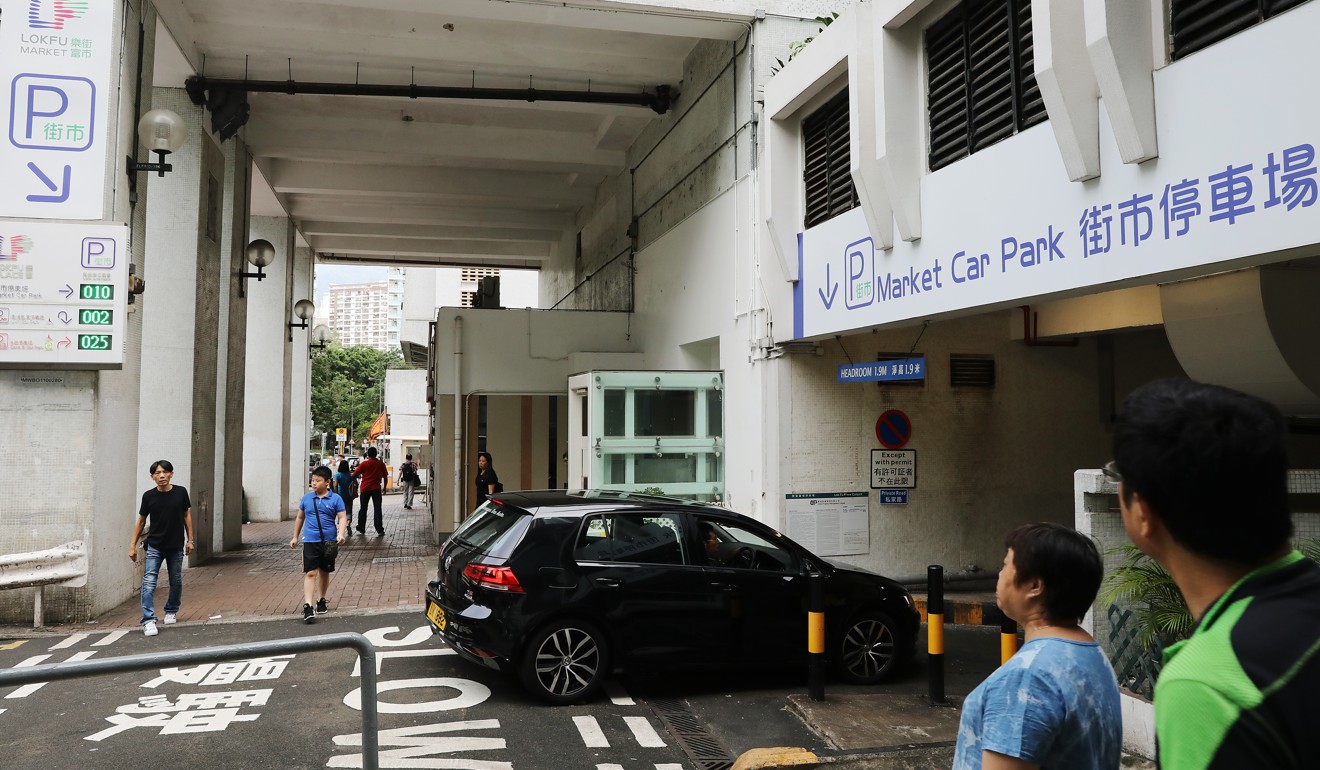
Hong Kong leader Carrie Lam says it would be ‘foolish’ to buy back Link Reit shares
Lam squarely dismisses option suggested by activists to buy shares of largest real estate investment trust in Asia
Hong Kong leader Carrie Lam Cheng Yuet-ngor says it would be “foolish” to buy back shares in property investment giant Link Reit but admitted “her hands are tied” in tackling the trust, which has raised ire for forcing small tenants out of its public housing estate malls with high rents.
Lam squarely dismissed a remedial option suggested by activists to buy back the shares of the Link Reit, now the largest real estate investment trust in Asia.
“No – because it is an unwise and foolish way [to solve the problem],” Lam said in an interview with RTHK aired on Friday.
“If the government announces in a high-profile manner that it will purchase the Link Reit back, I think the prices of the assets will go up drastically. It will be very damaging to the public coffers and do no good to the public.”
Amid controversy the Housing Authority privatised its 180 malls, wet markets and car parks through the Link Reit in 2005 – a decision Lam said she had reservations about more than a decade ago, although she was serving overseas at the time.

Lam said she believed the stores in public housing malls had played a specific role in society.
But she was serving as director general of the Hong Kong Economic and Trade Office in London back then. She said there was no turning back once the commercial decision had been made.
The government did not keep any share in the trust, leaving it fully in private hands.
The operation of the Link Reit has faced a barrage of criticism from politicians and government officials because of its profit-driven business model. This includes practices such as selling or leasing its shopping and car parking facilities to buyers who then further raise rents and fees, driving out small tenants and scrapping discounts for the disabled.
Link Reit sells 17 Hong Kong malls to Gaw-Goldman venture for HK$23 billion
Last month, the Link Reit sold a portfolio of properties that included 17 Hong Kong shopping centres to a consortium led by Hong Kong-based private equity fund Gaw Capital Partners, despite criticism that it would lead to a further rise in rents.
“I made no promise in tackling [the Link Reit] in my election or in my policy address,” Lam said. “I even have a feeling that my hands are tied because it has already become a business activity.”
The only power remaining for the government is to regulate the Link Reit through the conditions stated in the land leases, she said. That included requirements to provide rental discounts to educational and welfare groups, and to reserve car parking spaces for residents in the same district.
Link Reit shopping centre sell-off prompts widespread concern from Hong Kong public
Lam said when she was chief secretary she reminded officials from the Lands Department to ensure the Link Reit completely abided by the conditions in the land leases.
“[The government] should not give in as long as [the Link Reit] still comes and asks for permission,” she said. “Or else it would be playing the role of an accessory, assisting [the Link Reit] to do something that citizens would not like to see.”
But Lam admitted that the conditions in the land leases were limited so what the government could do was to build more public markets for residents.
Democratic Party chairman Wu Chi-wai, noting it may not be a wise move to buy back all the Link Reit’s assets with taxpayers’ money given its value was set to surge, said the government should at least consider purchasing some of the malls the trust attempted to resell in the market.
“These malls could become the obstacles that hinder the government’s initiative to redevelop those ageing public estates,” he said.
“The government has not looked into the issue carefully enough if it entirely dismissed the idea of buying back [part of these assets].”
In the same interview, Lam revealed the business sector was open to a preliminary proposal which would require employers to contribute an extra 1 per cent to an employee’s fund account.
She said the government was willing to commit more to subsidising employers and that it would continue to help forge a consensus between the business and labour sectors.

